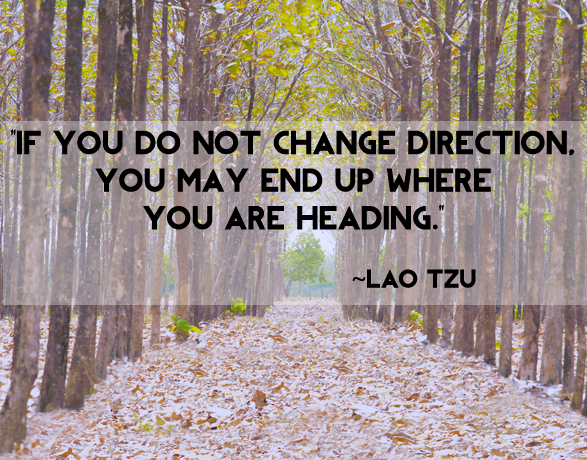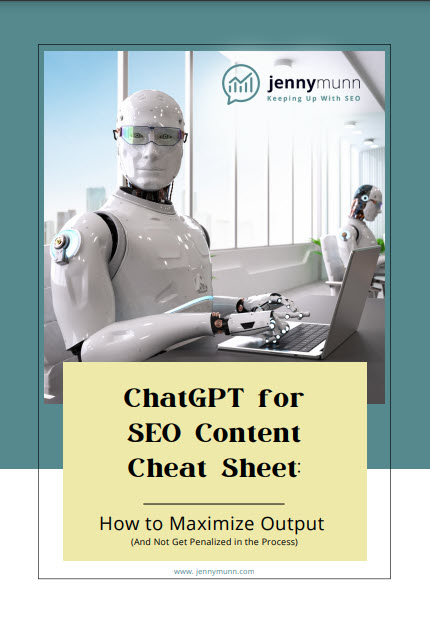 “If you do not change direction, you may end up where you are heading.” – Lao Tzu
“If you do not change direction, you may end up where you are heading.” – Lao Tzu
Times they are a-changin’.
Listen, I’m not one to jump on top of trends. I’m just now embracing the usage of hashtags for fun in my social posts.
#BTWmyhusbandhatesthewordhashtag #hashtagcantstopwontstop
But recently, I was given the incredible gift of speaking on a “Future of SEO panel” with some heavy hitters (an SEO from WebMD, the Director of SEO at a top SEO agency in Atlanta, and 2 others who are deeply respected in the SEO community) for a regional digital marketing conference. I put in a ton of research because I really wanted to hold my own amongst this panel of the “who’s who” in SEO in Atlanta.
Consider these 3 findings I came across that had nothing to do with SEO, but everything to do with SEO:
- Apple released its new and improved search feature in the mobile operating system iOS 9.
- Facebook is reportedly working on tests for its own search engine, which would allow its users to surf the web without ever leaving the app.
- App SEO is here and needs to be taken into account
First, I felt like this:

Then, I felt like this:
Too…many….implications….
May I be so bold as to call this piece “the State of SEO in 2016” for SMBs?
Calling this article “The State of SEO in 2016” may be overly dramatic.
After all, who is little ol’ me someone to declare “the state of” anything?? Well forget that, this is happening.
(#hashtagcantstopwontstop #yesIknowusingthewordhashtagisredundant)
This is an exciting time in digital marketing, and for SEO. There is still so much that is unknown, but there is a LOT that we SEOs do know, and it’s our responsibility to share. Direction and education is needed more than ever.
Some of my favorite findings from the research on the future of SEO:
- We have elevated the conversation to something much more meaningful than “Panda” and “Penguin.”
- SEO is about the process – tactics, techniques, strategies – of making your content findable. This will continue occurring on your site, but also increasingly away from your site because of a shift in customer behavior.
- This shift makes it imperative to know your target market, their keywords, state of mind, and pain points and apply creativity, strategy and processes to your content marketing, promotion and distribution.
- SEO will no longer work when approached as a silo tactic, but one in harmonic symphony with your other digital initiatives. It’s the other tactics you apply magic to that truly make SEO “happen.”
2016 is the year we all get on the same page about the following concepts:
- Shifting our thinking from “how to rank high in Google” to “how do we get our content found, consumed, and positioned to convert?”
- Taking “keywords are dead” with a grain of salt. We can all agree that keyword stuffing was stupid and is a thing of the past. However, keywords have, and always will, represent the language of our customers: their mindset, intention, pain points, wake up in the morning problems, and environment. We need keywords to be findable across all opportunities to engage with our market and meet them where they are.
- The term “search engine” historically has been synonymous with Google, but now we understand search engine is going beyond just Google to any place, community, website, app, where your target market is looking (Facebook is a search engine, Twitter is a search engine, Amazon, Quora, Pinterest, YouTube, Etsy, etc…..)
- Simple SEO tactics rarely add up to big results and conversions taking longer and require a more complex “post click” funnel.
- SEO has moved from being viewed as a “quick win” to understanding it’s now up there as a long-term channel with email marketing and social media.
- Understanding that you must invest into SEO because you can’t afford NOT to invest in tactics, techniques and strategies that are directly correlated into getting your content in front of your market.
- The SERPS are no longer 10 blue links but now a dynamic, ever-evolving and shrinking real estate space for most SMBs which requires creativity and a commitment to diversification.
- Diversification from site-based rankings only will become an important goal and set of activities SEO should be responsible for.
Case Study of How Searchers Search Today
In my research for the “Future of SEO” panel, I stumbled across this article that detailed how the author’s girlfriend came to purchase all of the furniture for their new loft in downtown Miami (forget the sensationalized and misleading heading for a moment). He documented her search process:
- First she went to Pinterest to find inspiration using keywords like “loft decorations” and then narrowed down to specific pieces of furniture.
- Next came Amazon, where she searched with keywords based on the rustic furniture she liked on Pinterest. She wasn’t overly thrilled at the results.
- Then she moved on to Ebay where she could find cheaper, secondhand furniture there. Still didn’t like what she found.
- Finally she landed on Etsy, where she purchased all furniture (subsequently breaking the author’s bank account).
What’s incredible about this, is that she completely bypassed Google. Google was an extra step she didn’t want to spend time on. Think about it: is Google now an extra step in the process for your prospects and customers?
I read this somewhere (apologies I can’t cite the source) that really struck a nerve: SEO hasn’t changed. Your customer has changed. Their buying patterns, internet surfing habits, favorite places to hang out and read, are evolving.
Now, think about how you search….
Did you know that mobile phone users spend 90% of their time within apps? I know that when I want a recipe, I go straight to Pinterest. When I’m looking for the nearest Starbucks, I go straight to my Starbucks app. My 20-minute Jillian Michaels workout? Straight to my YouTube app. How about you?
Sharing my customer findings from SEO Audits….
And lastly, I can share with you that when doing SERPS keyword research for B2B clients, I stumble across a lot of page 1 websites consisting of Quora answers, LinkedIn Pulse articles, LinkedIn individual profiles, and sometimes SlideShare presentation pages. Businesses, and especially services pages, are just not seen as readily.
The Challenge of SEO in 2016
I have a few ideas about what is evolving, which will change how I promote and offer my services in 2016. (more to come on this soon.) But more than ever we SEO and digital marketing pros and service providers must undertake the responsibility of being extremely clear about what we offer, and helping to continue elevating the conversation. I liken it from “traffic and leads” to “content discovery and traffic acquisition.”
This challenge applies to all digital markers and web designers and developers – how do you keep up with changes and tweak your offerings to meet budgets, expectations, and timelines when it requires adhering to Google, Bing, Apple, Facebook, your clients, their customers, and best practices which dictate building robust online presence along with a beautiful, user-friendly, well-written site that converts? It’s the eternal question I suppose.
So is SEO Finally Dead in 2016?
No, my friends. As long as your customers and prospects are searching for information, products, services, and knowledge around the pain points your solutions address, then SEO is very much alive.
In fact, according to a new report by LinkedIn and HubSpot, SEO is one of the most coveted and in-demand skills a digital marketer can possess.
And – have you heard of a little thing called “the opportunity cost of doing nothing“?
My definition of SEO is the process of making your content findable. And this is done through every expression of your brand (YouTube, LinkedIn, your website, etc. ).
Strategy matters more than ever. There comes a point when you can only throw out tactics at the wall for so long before stopping to check the metrics and ensure they’re aligned with the business goals and their contribution to results. And remember, SEO strategies have a shelf life so they need to be revisited quarterly.
So who should keep investing into SEO? Businesses who haven’t given up. Who won’t ever give up in continuing to invest in marketing channels that ensure they are doing everything they can to capture their share of the market. Who will do what it takes to be visible so your brand and website will continue to gain interest, quality traffic, and conversions.
SEO is hugely important right now, and you should be building this in to your budget to make sure you’re not wasting precious time and money engaged in obsolete practices. Or worse yet, failing to recognize the new patterns of customer search and purchase.
Next Steps – Evaluating How You Fit In
Do me a favor – pick 3 keywords you want to target for your business that are:
- Navigational Queries – When people want to be directed to another website
- Informational Queries – When people want to learn something
- Transactional Queries – When people want to buy or sell something
And observe the SERPS, results, and website types that are coming up. (competitor, aggregator, social media site, influencer/blogger, news source, Wikipedia, SERPS vertical like image, products, carousal, etc.)
How can you play in this world? How do you make a contribution? Can you get involved?
This brainstorming will start the future of your next wave of SEO.
To Conclude
It’s no longer just about optimizing your website for Google. It’s about optimizing your presence across the web.
By understanding who our target audience is and where they spend their time, we can dedicate resources to those platforms and build an organic presence.
My recommendation is the same as always: continue pursuing ways to constantly get in front of your target market. Put a plan together, execute, check the metrics, reset or tweak your strategy, execute again, rinse and repeat, rinse and repeat.
But who “owns” this? Who will manage the strategy, who will execute the tactics? Stay tuned until next time where I share with you what the components are of a modern SEO program. Until then!
(Psst…signing up for my non-boring SEO enewsletter is a great way to make sure you don’t miss out!)
Jenny Munn
Latest posts by Jenny Munn (see all)
- Four 2024 SEO Planning Tips for World Domination - November 16, 2023
- SEO Planning Tip: Why You Need a CYA Clause - November 3, 2023
- How Long Does SEO Take to Show Results? (Updated for 2023) - August 9, 2023



2 Comments
You had me at “We can all agree that keyword stuffing was stupid…”
Too funny, Joe! Glad to know that’s what reeled you in. 🙂 Thanks for commenting.